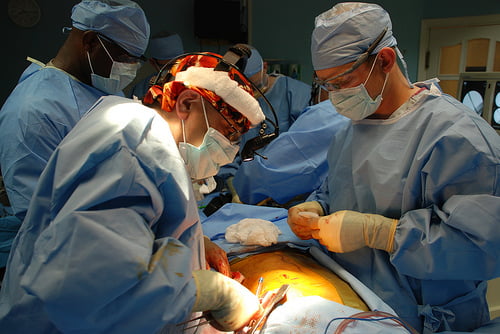A new research lead by Prof. Eitan Yaniv, head of the nose and sinus institute at the otolaryngology department at Beilinson Hospital in Israel, suggests that the communication style of a patient, which is a personal characteristic, influences the success of surgery.
Prof. Yaniv explained: “The research has spotted the exact cases in which the surgeon defines surgery as a success by clinical physiological measurements, and the patient himself defines the surgery as not successful.” The research examined the communication style of patients with their doctors and the effect of the patient’s personality on the perception of success of the procedure.
The author of the research, Hamotal Saragusty, says that “the style of communication is formulated at a very early stage in life, through the primal relationship of a baby with his caretaker, usually the mother. Styles of communication are usually divided between confident communication and insecure communication- in which there exists a high level of anxiety, a high level of avoidance or both.”
Sixty-three patients (39 men and 24 women of 18 to 68 in age) who were candidates for a nasal septum surgery were asked to fill out questionnaires. These questionnaires tested their communication style, their quality of life before and after the surgery and the experience of pain before and after the surgery.
The people examined were asked to rank sentences concerning their perception of the surgery they went through, like: “To what extent do you think the surgery can improve your health?” or “I feel comfortable being close to other people” or “It’s difficult for me to be dependent on other people.”
Patients with high level of communication anxiety (about 50 percent of participants,) were less pleased about the outcome of their surgery compared with the participants with a confident style of communication. The differences in their satisfaction were expressed in the ranking of life quality and pain parameters.
Prof. Yaniv explains: “The conclusion from the research is that subjective parameters which are influenced by personality characteristics of the patient influence his or her experience and his ability to recognize positive health changes and enjoy them. It is possible that we need to give special care to patients with anxieties, like greater availability, initiating a contact with the patient before and after the surgery etc. This way, patients will be able to experience improvement and relief in their condition after surgical procedures.”
The research was published in the journal of international rhinology and was conducted by Hamotal Saragusty for her M.A thesis with the guidance of Dr. Eti Berant of Bar Ilan University.
…
Translated by Sivan Kriboshe
Via Doctors Only
Photo by DVIDSHUB
Related posts

Israeli Medical Technologies That Could Change The World

Harnessing Our Own Bodies For Side Effect-Free Weight Loss

Missing Protein Could Unlock Treatment For Aggressive Lung Cancer




Facebook comments